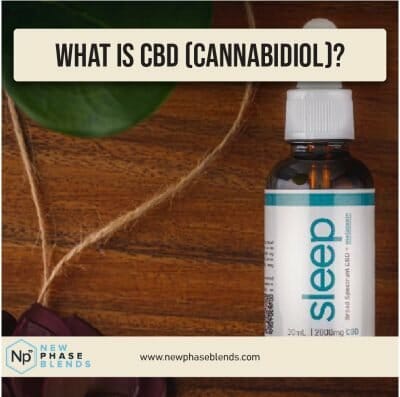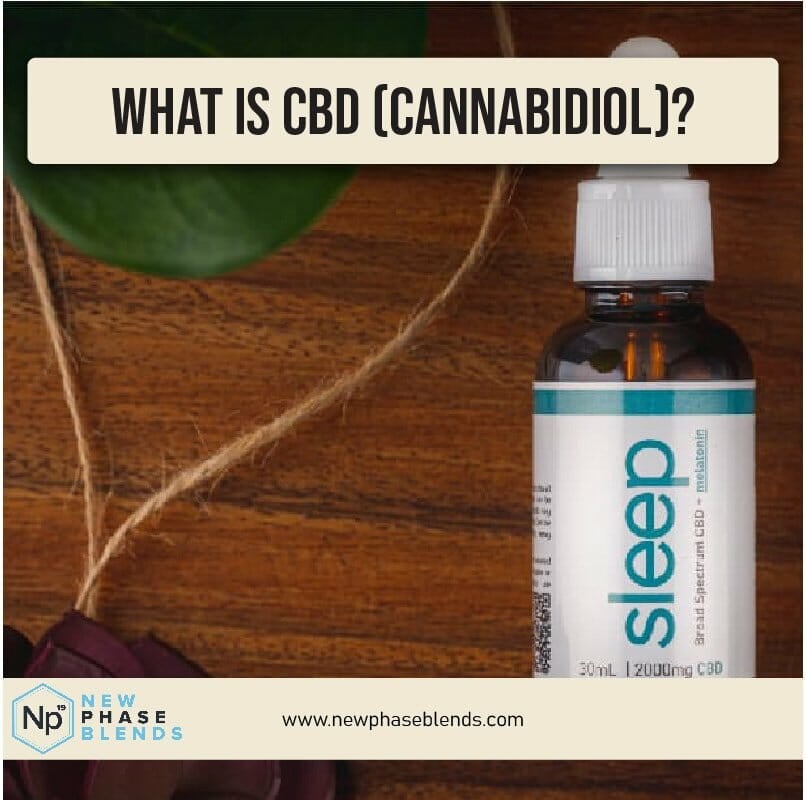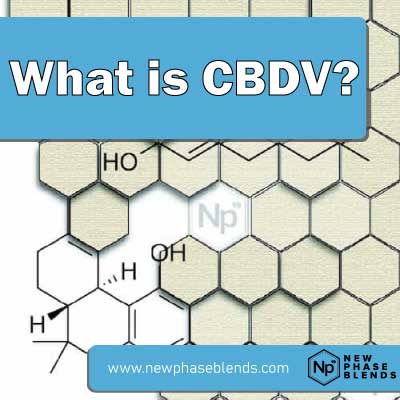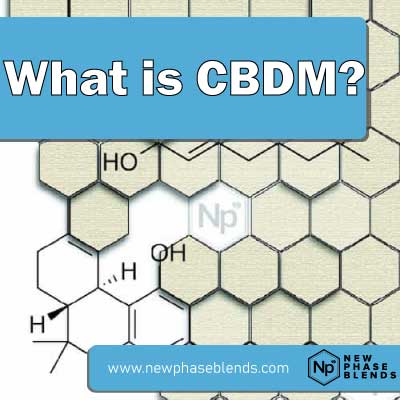CBD, short for cannabidiol, has become an increasingly popular wellness supplement in recent years. CBD is one of over 100 active compounds found in the cannabis plant and is the second most prevalent cannabinoid after THC. Unlike THC, the main psychoactive compound in cannabis, CBD is non-intoxicating and does not produce a “high.” Instead, CBD interacts with the body’s endocannabinoid system, which regulates various processes like pain, mood, sleep, and immune response. Research has shown CBD to have potential therapeutic benefits for conditions like chronic pain, anxiety, inflammation, seizures, and more. The growing interest in the medicinal properties of CBD has led to an explosion of CBD products on the market from oils and tinctures to edibles and topicals. With so many new CBD products available, many people are curious about exactly what CBD is, where it comes from, its legality, how to use it, and if it really works. This article provides a comprehensive overview of the essential things to know about the trending supplement CBD.
TL;DR – CBD, or cannabidiol, is one of many different plant chemicals within cannabis plants. Our bodies can utilize CBD, thanks to the endocannabinoid system we all have. The result is different benefits that may help people cope with the discomforts of life.
What is CBD?
Cannabidiol (CBD) is a natural plant chemical found in the cannabis plant species. It can be found in different quantities in both marijuana, or cannabis sativa (industrial hemp). Typically, CBD manufacturers extract CBD from the cannabis sativa plant due to the almost non-existent THC content. They then make different dietary supplements with the CBD extract for people to consume.
CBD products help offer a form a relief for people with symptoms like:
- inflammatory and neuropathic pain
- forms of chronic pain
- depression
- anxiety
- seizure management
- multiple sclerosis
There are some of the more frequently reported health conditions that people report using CBD products for.
What Does CBD Stand For?
CBD stands for cannabidiol, as discussed previously. It’s found in cannabis plants, which includes both marijuana, and hemp (cannabis sativa). Most people do not know that cannabis plants includes both hemp and marijuana.
The main difference between these plants is THC content – that’s it. We will get more into this later on, though.
Where Does CBD Come From?
CBD is technically classified as a phytocannabinoid, meaning it is produced by plants in the cannabis family. Hemp plants are required by law to contain less than 0.3% THC, so most CBD today is extracted from hemp rather than marijuana.
The 2018 Farm Bill legalized the cultivation and sale of hemp across the United States. So while marijuana remains federally illegal, hemp-derived CBD is legal in all 50 states as long as it abides by the 0.3% THC limit. This has led to an explosion of CBD products hitting the market in recent years.
The Differences of Hemp and Marijuana
While hemp and marijuana both belong to the cannabis plant family, there are some key differences between the two:
- Hemp naturally contains very low levels of THC (less than 0.3%) while marijuana can contain anywhere from 5-35% THC.
- Hemp is legal nationwide following the 2018 Farm Bill while marijuana remains federally illegal (but legal in some states).
- Hemp is primarily grown for industrial uses like textiles, biofuels, oils, ropes, and now CBD extraction while marijuana is cultivated mainly for its high THC content and medicinal/recreational uses.
- Hemp has a long history of use dating back thousands of years while marijuana cultivation is thought to have originated in Central Asia in the first millennium BCE.
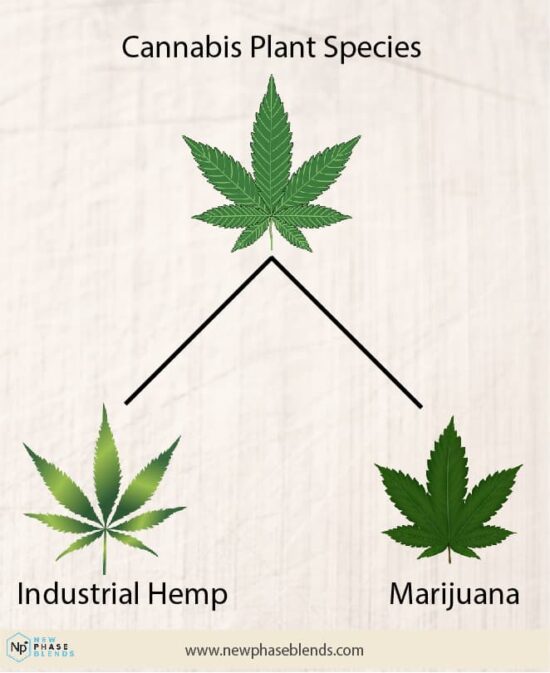
So in summary, the main difference lies in their THC content, legality, and intended uses. But they are ultimately just different varieties of the same cannabis species.
How Does CBD Differ From THC?
Despite both being phytocannabinoids, CBD and THC produce very different effects:
- THC generates the cannabis “high” and mind-altering psychoactive effects while CBD does not.
- THC binds directly to endocannabinoid receptors whereas CBD interacts indirectly and may inhibit some effects of THC.
- CBD products are legal federally while marijuana products containing high levels of THC are still federally illegal.
- CBD is being studied primarily for medicinal and therapeutic uses while THC has more recreational appeal.
- Side effect profiles differ between THC and CBD. CBD tends to be better tolerated with lower risk for addiction or abuse potential.
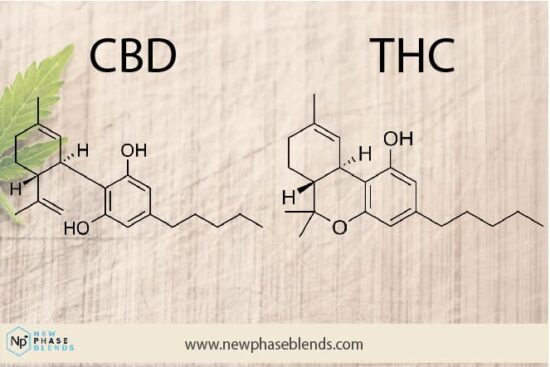
While complementary in some ways, their mechanisms of action in the body differ significantly resulting in distinctly different sensations and uses.
Is CBD Legal in the United States?
Yes, CBD is legal on a federal level in the US. It was removed from the controlled substances act back in 2018 when the Agriculture Improvement Act (a.k.a. the Farm Bill) was made into federal law.
All of the cannabis derived compounds (cannabinoids, specifically) in cannabis were considered a controlled substance up until this point. Since CBD is not intoxicating, it makes sense that laws legalized CBD were made. Hemp-derived CBD products are legal, while marijuana-derived products are not.
Medical marijuana and recreational marijuana is still largely illegal, and is considered a prescription drug because of the high THC content. THC remains a part of the controlled substances act, but it may not be much longer until the US makes THC legal at a federal level, too. The exact legal status of THC, though, remains illegal.
Recognizing How Cannabinoids Like CBD Function In Our Bodies
The term phytocannabinoid simply means plant chemical. It’s one of approximately 124 known cannabinoids. There are likely more, we just haven’t isolated them and studied them – yet. More research in the form of clinical trials is definitely needed for both CBD, and other cannabinoids.
Most people have heard of tetrahydrocannabinol (THC). Both CBD and THC are different cannabinoids. While THC is highly psychoactive (making you get high if you consume it), CBD oil is 100% non-intoxicating.
The health benefits of CBD are undeniable. By taking CBD products, like CBD oil or gummies, our bodies can utilize the benefits of CBD, and all of the compounds that go along with it.
The endocannabinoid system is responsible for how CBD works when we consume it.
Importance of the Endocannabinoid System
Did you know there is a system in our bodies that utilizes cannabinoids, like CBD? It is called the endocannabinoid system. It is a recently discovered system in our bodies that researchers still don’t know much about.
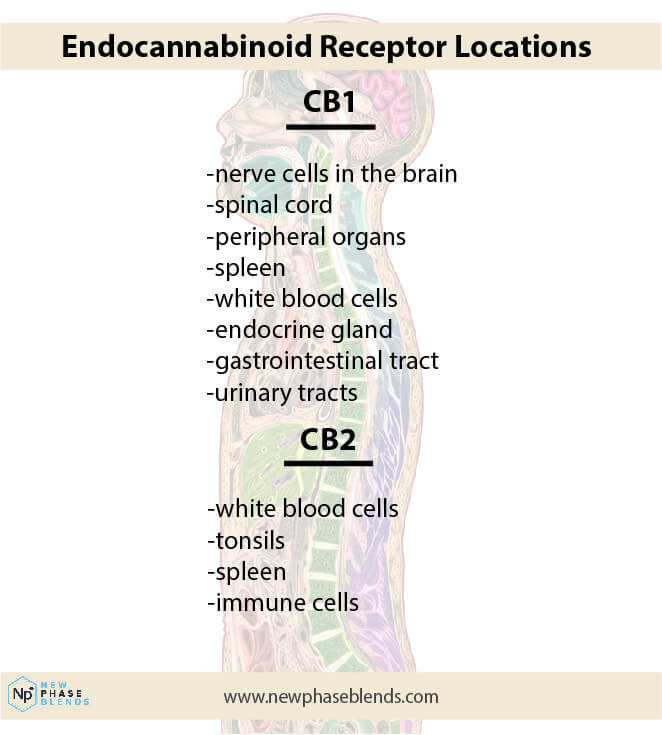
Recently, scientists and health specialists found out that it affects a few significant cycles in our body like hunger, mood swings, the way we rest, and other functions.
This system is composed of three parts:
- the CB cannabinoid receptors
- endocannabinoids
- enzymes
All of these parts are working 24/7 – regardless of whether you use something like CBD balm, or not.
Recognizing the impacts of CBD oil includes inspecting, and then classifying, the connections between the CB receptors and the endocannabinoids.
Cannabinoid Receptors
Cannabinoid receptors are found throughout our bodies. It is where the endocannabinoids initially bind. They are classified as CB1 and CB2 receptors. While we think there might be more than two receptors, these are the only two we’ve found so far.
The CB1 receptors mainly focus on the focal sensory system in our body. CB1 receptors are responsible for overseeing mood swings, memory loss, hunger, body coordination, and state of mind. The CB2 receptors are responsible for influencing pain and irritation.
The CB1 receptors mainly focus on the focal sensory system in our body. CB1 receptors are responsible for overseeing mood swings, memory loss, hunger, body coordination, and state of mind. The CB2 receptors are responsible for influencing pain and irritation.
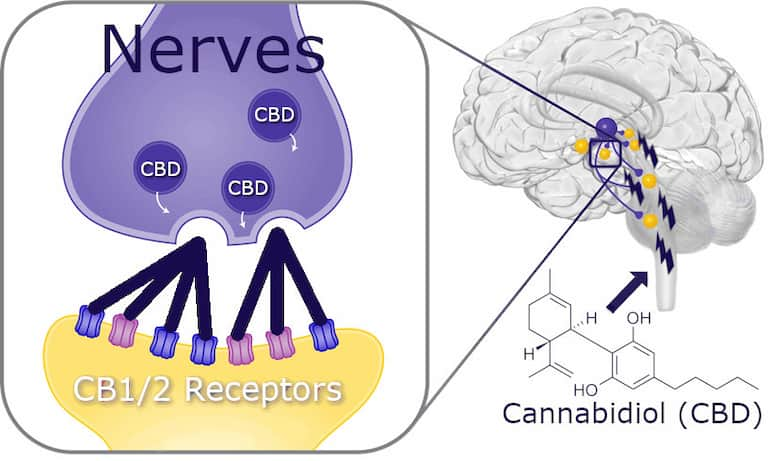
According to researchers from multiple scientists, CBD doesn’t directly combine with the CB receptors, but it does impact it somehow. Some research thinks CBD interacts with an undiscovered receptor.
What Are the Potential Benefits and Risks of Using CBD?
The most well-established benefits of CBD from human trials are for treating childhood epilepsy syndromes like Dravet syndrome and Lennox-Gastaut syndrome (LGS).
Multiple studies have found CBD reduces seizure frequency and severity in these disorders. CBD is also frequently used to help manage different types of pain, especially chronic pain conditions.
Early research shows it may reduce pain and inflammation due to its interaction with endocannabinoid receptors. Other potential benefits that are being investigated include using CBD for anxiety, depression, insomnia, neurodegenerative disease (e.g. Alzheimer’s), and substance use disorder, among others.
In terms of risks, side effects tend to be minimal but can include diarrhea, fatigue, appetite/weight changes, and liver enzyme changes at high doses. CBD may also interact with certain medications so it is very important to talk to your doctor before trying it.
Overall the risks appear low, but more long-term human studies are warranted to fully understand the benefits and potential risks of CBD products.
Is CBD Safe?
Yes, it is extremely safe. In fact, the World Health Organization issued a statement claiming that CBD is safe for use.
That said, CBD may not be safe for pregnant women and lactating mothers – we just don’t know yet. Health specialists recommend that you avoid the use of CBD products when you are in these kinds of situations.
If your children are prescribed to take CBD oil, then it’s recommended that a child should only consume a what they need to feel relief – no more.
Interesting fact: Did you know that CBD is safe for dogs, too?
As mentioned earlier, the side effects are quite rare, and mostly come from taking too much CBD. Finally, if you are currently taking other medications, be sure to discuss your CBD use with your doctor to ensure no drug interactions occur.
Side Effects of CBD
Although not FDA approved for use as dietary supplements, CBD is safe to use. The World Health Organization has deemed CBD safe, in addition to other organizations. That said, users may experience some side effects when taking high doses. The side effects of CBD oil include dizziness, fatigue, dry mouth, and feeling sleepy during the daytime.
Thankfully, these side effects come mainly from taking too much CBD oil, or relatively high doses. Remember, start off with the lowest effective dose to see health benefits, and work your way up from there. If using other medications, please consult with your doctor to make sure there are no negative drug interactions.
Is CBD Regulated and Approved For Medical Uses?
The FDA has only approved one CBD-based prescription drug called Epidiolex for treating rare seizure disorders like Dravet and Lennox-Gastaut syndromes in children. There are currently no other FDA-approved uses for CBD in any form.
The FDA also has not approved any over-the-counter CBD products or health claims associated with CBD. This includes CBD supplements, oils, gummies, creams, and pet products, none of which can claim to diagnose, treat, cure, or prevent any disease.
Despite the lack of FDA regulation, CBD remains legal at the federal level under the 2018 Farm Bill as long as it’s derived from hemp containing less than 0.3% THC. State laws vary in terms of CBD legality though.
In summary, high-quality, properly sourced CBD supplements appear to provide therapeutic benefits based on preliminary studies, but more clinical research and regulation is still needed. Consumers should be aware of the risks of using unapproved CBD products not validated by the FDA. Consult a doctor to discuss if CBD is right for your individual needs.
The Food and Drug Administration’s (FDA) Stance on CBD Products
You can purchase CBD products for sale in a number of different places, but did you know that the Food and Drug Administration (FDA) has not authorized it for use to treat anything?
It’s 100% federally legal within the United States, but the FDA still hasn’t allowed people to mark CBD products as a dietary supplement, or make health claims on the medical use of CBD. Most experts in the industry believe that the FDA will soon change their stance.
How Do You Know If a CBD Product is High Quality?
Since the CBD market is unregulated, product quality can vary widely. While it isn’t overly difficult to find a high quality CBD product, you definitely need to scrutinize a little bit before purchasing.
Here are a few tips for identifying quality CBD products:
- Look for products made from organic hemp to avoid pesticides and solvents.
- Opt for full or broad spectrum CBD rather than isolates to get the full entourage effect.
- Choose CO2 or solvent-free ethanol extraction for pure, contaminant-free CBD extracts. Ensure the product has been third-party lab tested for purity and potency. Reputable brands post test results.
- Research the brand’s reputation and avoid any making wild medical claims.
- Check customer reviews on social media sites and CBD forums for unbiased opinions on different products. Doing thorough research beforehand helps ensure you get all the benefits of CBD without wasting money on low quality products.
Consult a doctor as well about the best form and dosage to meet your individual needs.
What Methods Can Be Used to Extract CBD?
There are various methods CBD producers use to extract CBD oil from hemp:
- CO2 extraction uses pressurized carbon dioxide to extract CBD from the plant. It requires costly equipment but yields a potent extract.
- Solvent extraction uses solvents like ethanol or butane to strip CBD from the plant matter. Ethanol is preferred for safety.
- Oil infusion involves infusing plant material in a carrier oil and heating over time to draw out cannabinoids. This is a simpler technique but less efficient than CO2 or ethanol extraction.
- Supercritical extraction combines CO2 extraction with high heat/pressure to maximize efficiency. However, many believe this technique damages terpenes and flavonoids.
Overall, ethanol extraction is considered one of the best methods for preserving hemp’s precious phytochemicals while producing high CBD yields. CO2 extraction is also very clean and efficient. But there are pros and cons to each method.
Summary – CBD Explained
The cannabis plant contains over 100 active compounds known as cannabinoids. The two most prevalent and well-studied cannabinoids are tetrahydrocannabinol (THC) and cannabidiol (CBD).
While THC is the main psychoactive compound that produces the “high” associated with marijuana, CBD does not have intoxicating effects. CBD interacts with the body’s endocannabinoid system, which regulates various processes like pain, mood, appetite, memory, and immune response.
Research indicates CBD has potential as a therapeutic agent for pain, anxiety, inflammation, seizures, neurological disorders, and more. Unlike THC, CBD is non-intoxicating and federally legal in the US as long as it’s derived from hemp containing less than 0.3% THC. The growing awareness of CBD’s health benefits has led to an explosion of CBD products on the market, ranging from oils and tinctures to edibles and topicals.
However, more research is still needed to fully understand CBD’s mechanisms, efficacy, side effects, and safety, especially long-term. Overall, CBD shows promise as a supplement, but consumers should be aware that CBD products are not yet FDA-approved and more human studies are needed to confirm benefits and risks.
*FDA disclaimer: none of the statements on this webpage have been approved by the Food and Drug Administration. These statements have not been evaluated by the FDA. These products are not intended to diagnose, treat, cure, or prevent any disease. Medical advice should be sought before starting any supplement. If you are pregnant or nursing consult with a doctor. Medical advice should be sought if you have any pre-existing medical conditions. If you take other prescription medications, a doctor’s advice should be sought. Site void where prohibited.



